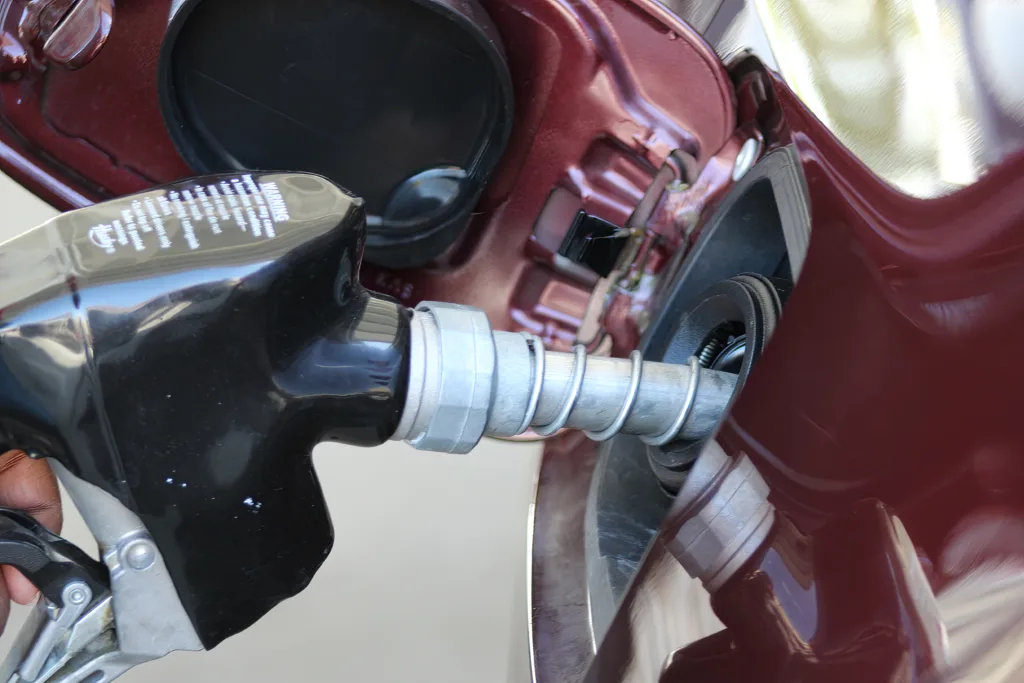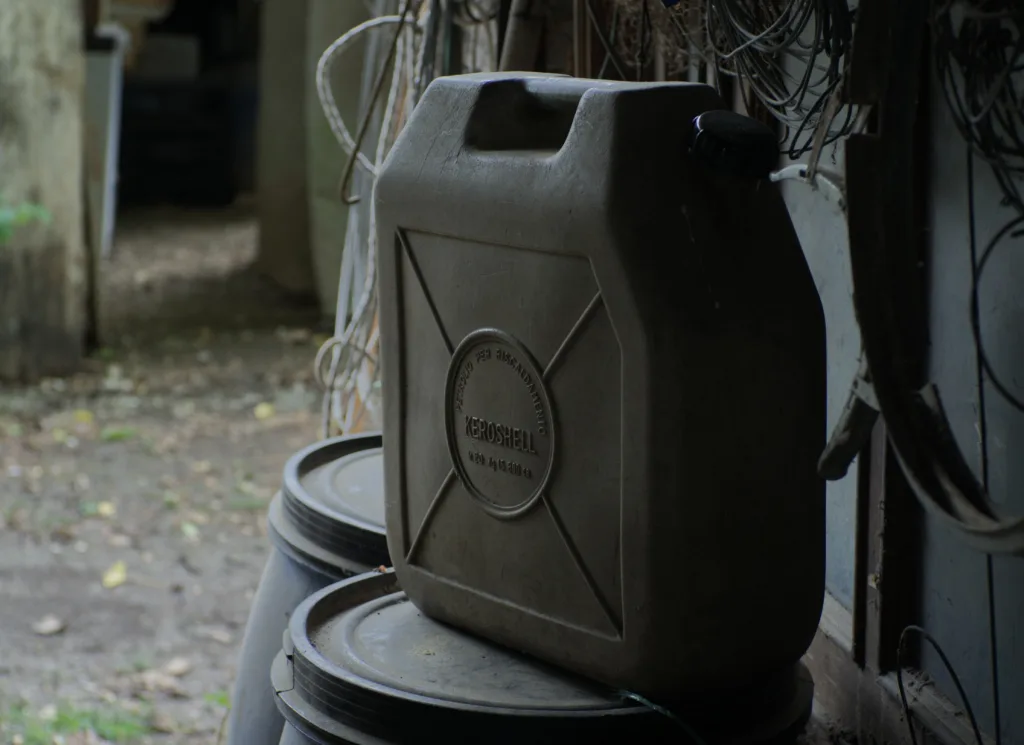Gasoline is an essential component that powers our vehicles and keeps us moving. However, have you ever wondered how long gas can sit in your car’s tank beore you need to refill it? The answer depends on several factors, including the type of gasoline, storage conditions, and the age of the gasoline.
First and foremost, it is important to note that all gasoline will begin to degrade over time due to exposure to oxygen, also known as oxidation. However, not all gasoline is created equal. The degradation process starts from the moment the gasoline is produced, and most gasoline stays fresh for a month or two without issue. After that, you may begin to notice minor decreases in performance, but the gasoline is generally still safe to use.
Gasoline that is more than two months old can cause issues like engine knocking, sputtering, and clogged injectors. This is because the gasoline has begun to break down, and its chemical composition has changed. If you plan to keep gasoline in your vehicle for an extended period, it is recommended that you keep your tank full. This reduces the amount of oxygen inside the tank, which slows down the oxidation process.
If you don’t plan to drive your vehicle for an extended period, adding a fuel stabilizer to your car’s tank is a trusted way of increasing your gasoline’s longevity. Fuel stabilizers work by preventing oxidation and keeping the gasoline’s chemical composition intact. Some fuel stabilizers can even extend the lifespan of gasoline for up to three years.
It’s important to note that the type of gasoline you use can also impact its lifespan. Gasoline with higher levels of ethanol, such as E10 or E15, has a shorter lifespan than gasoline with lower ethanol levels, like E0 or regular unleaded gasoline. This is because ethanol is hygroscopic, meaning it absorbs moisture from the air. This can cause the gasoline to break down more quickly.
The lifespan of gasoline depends on several factors, including the type of gasoline, storage conditions, and the age of the gasoline. Gasoline can last between three months and three years, but it is generally safe to use for up to two months without issue. To extend the lifespan of gasoline, keep your tank full, add a fuel stabilizer, and use gasoline with lower ethanol levels. By following these tips, you can ensure that your vehicle always has fresh gasoline, and you won’t have to worry about engine issues caused by degraded gasoline.
How Long Does Gas Last in a Car?
Gasoline is a vital component for cars to function properly, and it’s essential to know how long it can last in a car. The lifespan of gasoline can vary based on multiple factors, such as the type of gas and how well it is stored.
Gasoline is composed of various compounds, and over time, these compounds start to break down and evaporate, leading to the degradation of the gasoline. This process is called oxidation, and it is accelerated when gasoline is exposed to air, heat, and light.
The lifespan of gasoline can also depend on the type of gas you use. Ethanol-blended gasoline has a shorter lifespan than regular gasoline. This is because ethanol absorbs moisture from the air, whih increases the risk of oxidation, and the gasoline’s octane rating decreases over time.
On average, gasoline can last between three months to three years. However, if you want to ensure that your gasoline lasts as long as possible, you must store it correctly. Here are some tips to keep in mind:
– Store gasoline in a clean, airtight, and opaque container to minimize exposure to air, heat, and light.
– Keep gasoline away from any ignition sources, such as flames or sparks.
– Store gasoline in a cool and dry place, away from direct sunlight.
– Use a fuel stabilizer to prolong the lifespan of the gasoline.
The lifespan of gasoline in a car can vary based on various factors, such as the type of gas and how well it is stored. Proper storage and maintenance can help extend the gasoline’s lifespan, ensuring that your car runs smoothly and efficiently.

The Dangers of Using Old Gas
Gasoline is a highly volatile liquid that can degrade over time due to the evaporation of its lighter components. As a result, using old gas can cause problems with the performance of your engine. The question of how old is too old when it comes to gasoline is a common one, and the answer depends on several factors.
In general, gasoline that is more than two months old should be used with caution, as it may have lost some of its potency. However, if the gas has been stored in a sealed container away from heat and light, it may stll be usable for a few more months. Gas that is older than a year should be avoided if possible, as it may have degraded to the point where it can cause issues like engine knocking, sputtering, and clogged injectors.
If you have old gas that you want to use, there are a few things you can do to help ensure that it’s as fresh as possible. One option is to add a fuel stabilizer to the gas, which can help to slow down the degradation process. You can also mix the old gas with fresh gas to dilute any contaminants that may have formed.
While it’s possible to use old gas, it’s generally not recommended. Gas that is more than two months old may cause minor decreases in performance, and gas that is older than a year can cause more serious issues. If you do need to use old gas, take steps to ensure that it’s as fresh as possible, such as adding a fuel stabilizer or diluting it with fresh gas.
Maximizing the Life of Your Gas Tank
Gasoline is a precious commodity, and it is understandable that you want it to last as long as possible. While it is not possible to make gasoline last forever, thre are several things you can do to extend its lifespan. Here are some tips to help you make gas last longer:
1. Keep your tank full: When you have a full tank of gas, there is less oxygen inside, which reduces the rate of oxidation. This means that the gasoline will last longer.
2. Use a fuel stabilizer: Fuel stabilizers are additives that you can add to your car’s tank to increase the longevity of the gasoline. These stabilizers work by preventing the gasoline from breaking down and oxidizing.
3. Store your gasoline properly: If you have extra gasoline that you want to store, make sure you store it in an airtight container that is designed for gasoline storage. This will help prevent the gasoline from evaporating and oxidizing.
4. Drive your car regularly: If you don’t plan to drive your car for an extended period, make sure you drive it at least once a week. This will help keep the gasoline moving through the system and prevent it from breaking down.
5. Avoid idling: Idling your car for long periods of time can waste gas and reduce its lifespan. If you are going to be parked for a while, turn off your engine.
By following these tips, you can help make your gas last longer and save money in the long run.
The Rate of Gas Dissipation
Gas in the digestive system can cause discomfort, bloating, and pain, but it typically passes on its own within a few hours. The amount of time it takes for gas to go away can vary from person to person and depend on several factors, including the cause of the gas, the individual’s digestive system, and any underlying health conditions.
If gas is caused by eating certain foods, such as beans or cruciferous vegetables, it may take up to 24 hours for the gas to fully pass through the digestive system. Similarly, if gas is caused by a digestive condition, such as irritable bowel syndrome (IBS) or inflammatory bowel disease (IBD), it may take longer for the gas to go away as the underlying condition is treated.
However, in most cases, trapped gas in the digestive system will pass on its own within a few hours. Certain things can help speed up the process, such as drinking plenty of water, taking a walk or doing light exercise, and avoiding foods that may cause further gas production.
It’s important to note that if gas is accompanied by oter symptoms, such as severe pain, fever, or vomiting, it may be a sign of a more serious condition and should be evaluated by a medical professional.

Conclusion
Gasoline is an essential component for our modern-day transportation needs. It’s important to understand that gas does have a shelf life and can degrade over time, leading to performance issues in your vehicle. However, by properly storing gas and using fuel stabilizers, you can extend the life of your gasoline and avoid engine problems. It’s also worth noting that excessive gas production in our bodies can cause discomfort, but it usually passes on its own. As with many things in life, it’s all about finding the right balance and taking steps to maintain and care for what we have.
